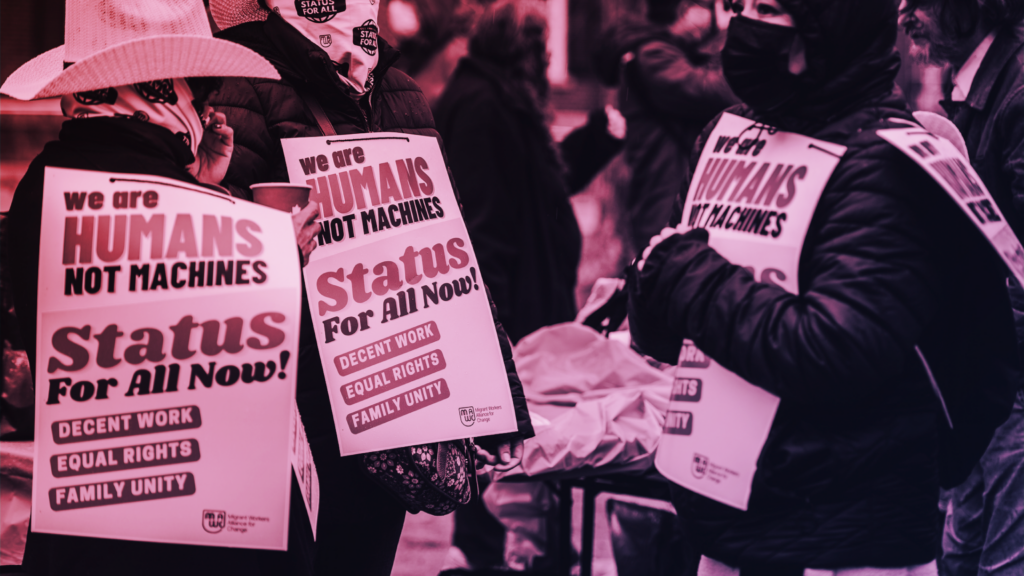FOR IMMEDIATE RELEASE
July 24, 2013
Media Release
Canada’s Top Labour Leaders Call on Premiers to Oppose Harper’s Low-wage Agenda
(NIAGARA-ON-THE-LAKE, ONTARIO) – At a meeting with Canada’s premiers, labour leaders from across the country called for unity among the provinces and territories in rejecting Prime Minister Stephen Harper’s low-wage agenda. While the premiers gather for their Council of the Federation meeting in Niagara-on-the-Lake this week, the presidents of Canada’s provincial and territorial federations of labour are hosting parallel meetings where jobs, pensions and healthcare are the big-ticket items.
The labour federation presidents called on the premiers to put pressure on the federal government to double the Canada Pension Plan and renew the 2004 Health Accord, but the main focus of their talks was on jobs, training, the Temporary Foreign Worker Program, Employment Insurance and Canada’s labour market.
“The Harper government is driving down wages and working conditions for all Canadians,” said Lana Payne, President of the Newfoundland and Labrador Federation of Labour. “The latest changes to Employment Insurance be terrible for the labour market and damaging for the economy as well. They will hurt industries and employers in some regions of the country but they will hit the most vulnerable workers hardest, with fewer and fewer unemployed workers being eligible for benefits.”
The federation of labour presidents encouraged all the premiers to call on the federal government to scrap the Employment Insurance changes.
Today 1.4 million Canadians are unemployed while the country faces many labour market challenges, including the rise of precarious work, the exploitation of migrant workers, cuts to Employment Insurance and reduced investment in job training programs for vulnerable workers – all of which highlight the need for a renewed focus on creating jobs for Canadians.
“The premiers must reject this low-wage agenda,” said Sid Ryan, President of the Ontario Federation of Labour. “The premiers have an opportunity to use their leadership to engage in substantive dialogue and take action to make sure that Canadians have good jobs. One way they can do this is by establishing Labour Market Partners Forums in every province and territory to provide vision, collaboration and leadership on job creation.”
Already established in Québec and Newfoundland and Labrador, a Labour Market Partners Forum is a tripartite body that would facilitate collaboration and dialogue between government, labour and employers, particularly on employment strategies. This coming together of stakeholders would help to develop economic strategies that would allow the provinces and territories to compete in a global economy on the basis of high productivity and quality rather than low wages.
There is no shortage of labour market issues to be discussed in this kind of tripartite forum, including job training programs, support for unemployed persons, regular increases to the minimum wage and protections for migrant workers.
“The Temporary Foreign Worker Program is being used to fundamentally transform our country’s labour market in ways that are detrimental to the interests of ordinary Canadians,” said Gil McGowan, President of the Alberta Federation of Labour. “Provincial and territorial governments should follow Manitoba and Saskatchewan in implementing legislation that protects migrant workers from abuse and exploitation. The premiers should join the growing chorus of critics calling on the federal government to scrap the low-skill stream of the Temporary Foreign Worker Program. These workers are being used as pawns to drive down wages and displace Canadians, while also allowing employers to shirk their responsibility to train Canadians. The Premiers need to stand up to the Harper government on this important issue.”
Together, Canada’s provincial and territorial labour federations give voice to over three million workers, represented by the Alberta Federation of Labour, British Columbia Federation of Labour, Canadian Labour Congress, Manitoba Federation of Labour, New Brunswick Federation of Labour, Newfoundland and Labrador Federation of Labour, Northern Territories Federation of Labour, Nova Scotia Federation of Labour, Ontario Federation of Labour, Prince Edward Island Federation of Labour, Saskatchewan Federation of Labour and Yukon Federation of Labour.
-30-
For further information:
Joel Duff, OFL Communications Director: 416-707-0349 or jduff@ofl-org.flywheelsites.com *ENG/FRE*


